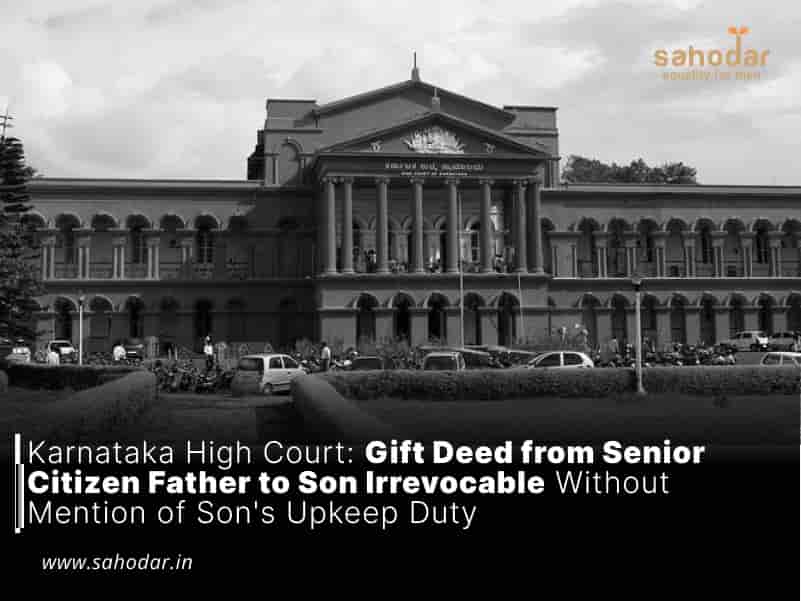The Karnataka High Court has ruled that a gift deed made by a senior citizen in favor of his son, who subsequently sells the property, cannot be revoked by the Assistant Commissioner of the Senior Citizen Tribunal if there is no stipulation in the deed regarding the father’s upkeep.
In a decision by Justice M Nagaprasanna, the court granted a petition filed by Vivek Jain, who had purchased the property from CS Harsha, the son to whom the property was gifted by his father Srinivas in 2019.
Initially, Srinivas gifted the property to his wife in 2000, but following her demise in 2015, he gifted it to his son in 2019, with the son’s name being updated in all official records. Subsequently, the son sold the property to the petitioner. Two years later, Srinivas approached the Assistant Commissioner under Section 23 of the Senior Citizens Act.
The Assistant Commissioner invalidated both the Gift Deed and the sale deed, prompting the filing of the petition.
The petitioner argued that the gift deed did not include any condition warranting the Assistant Commissioner’s intervention. Furthermore, the Commissioner had no authority to annul the sale deed in favor of the petitioner.
The donor’s counsel contended that after his wife’s passing, Srinivas assumed ownership of the property and gifted it to his son accordingly. However, legally, the property would not revert to the donor’s possession, and all family members would be entitled to a share. Thus, all actions after his wife’s demise were legally invalid.
The court considered that Srinivas enjoyed the property for over four years after his wife’s passing before gifting it to his son in 2019. After the gift deed, all outstanding debts, including a bank loan, were settled by the son. Subsequently, the bank issued a discharge deed in favor of the son, clearing the property of all encumbrances. It was only after this that the son sold the property to the petitioner.
Moreover, the sale proceeds were disbursed to Srinivas, with Rs 15 lakhs deposited in the Life Insurance Corporation of India and Rs 10,000 per month remitted to his bank account.
Relying on the Apex Court judgment in the case of Sudesh Chhikara v. Ramti Devu (2022), the court said, “The Assistant Commissioner would get jurisdiction to annul the gift deed only if the recitals in the gift deed have the condition, as observed by the Apex Court in RAMTI DEVI. There is no condition in the gift deed that would satisfy the test laid down in RAMTI DEVI. Therefore, this Court cannot but interfere with the order passed by the Assistant Commissioner.”
Further it rejected the contention of the donor (Srinivas) that petitioner has no right to question the order passed by the Assistant Commissioner. It said “I decline to accept the said submission. Before the Assistant Commissioner, the petitioner was a party; he was respondent No.3. He had to protect his property which he had purchased in accordance with law. There was nothing contrary to law when the petitioner purchased the property from the hands of the 4th respondent. Against the order passed by the Assistant Commissioner, the petitioner had approached the Deputy Commissioner by filing an appeal. The appeal is dismissed for want of maintainability and, therefore, the petitioner is before this Court.”
It added, “If he is to be driven to the civil Court, the present order of the Assistant Commissioner will always stare at him, as he has lost the property by a stroke of pen, of the Assistant Commissioner, which I have found fault with, following the afore-quoted judgments. Therefore, the petitioner does have all the right to call the said order of the Assistant Commissioner in question before this Court, as he cannot be left remediless.”
The court refused to consider the issue of whether the property would devolve back to the hands of the father after the death of his wife who was the recipient of the first gift deed. It said, “I leave the issue open to be agitated by the parties before a competent civil Court.”
Finally, considering the escalating cost of living, the court observed that the current amount being sent to the father would be insufficient. Consequently, the court ordered the son to provide an additional maintenance of Rs 10,000 per month.

